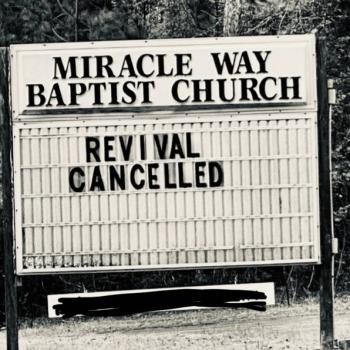
My youngest daughter disobeyed me this past weekend. Actually, she put the crowning touch on what has, in truth, been a lifetime of disobedience. Ever since she was a little girl, barely able to walk, I have given her one simple instruction. I have repeated myself countless times, and, honestly, I feel I have been very clear as to my expectations. But, in what seems a willful refusal to honor her father, she has persisted in her rebellious ways. Although I had made it clear that she was to stop growing up, she has stubbornly continued her headlong rush into adulthood. Just this past weekend, she took the final, irrevocable, step of rebellion by having the nerve to, of all things, get married!
Promises of Ignorance
In the days and weeks leading up to the big day, I had the opportunity to reflect anew upon the central element of the wedding ceremony—the vows. The interesting thing about the promises made at weddings is they are promises of ignorance, which is what makes them so powerful and solemn. The bride and the groom, in some form or another, promise to take the other as their partner for life, warts and all, forever, without condition. Think about that a moment. Neither one knows what the future holds, but both affirm that it doesn’t matter. My daughter promised to take her beau as her husband without even a whiff of “if,” and he did the same for her.
This is both the miracle and mystery of the marriage commitment. The couple has no way to know what it is they are pledging themselves to, and it doesn’t matter. The weight is all on the promise; if the promise holds, the relationship survives and has a chance to thrive. There is so much faith that goes into this kind of conditionless commitment. The couple doesn’t know where they are going, or even how they are going to get there; they just know they are going together.
The Father’s Better Promise
This is, it seems to me, one reason why the institution of marriage is such a perfect representation of our relationship with the Father. We pledge our lives to God under the influence of the Spirit before we can even begin to know where that pledge will lead us. Sometimes, it is true, when we see what is asked of us, we shrink back in fear and trepidation. Our promises are often weak and unreliable. Fortunately, our standing with God isn’t based on our frail promises, but on God’s “better promises” (Heb. 8:6). God’s promises are perfectly reliably because, unlike us, He knows exactly what He is getting Himself into. Nothing that happens, nothing we do, catches Him by surprise.
The Eternal Promise of Love

We can, particularly in our youth, make promises in ignorance because we can convince ourselves that the future will really be perfect for us, even though we know realistically it won’t. God, on the other hand, promises His love to us even though He knows, not only that we will fail to live up to our own commitment, but how desperately we will fail. As Paul put it in Romans 5:8, “God demonstrates His own love towards us in this: while we were still sinners, Christ died for us.”
This is to me the enduring beauty of the wedding ceremony. For a Christian, there is no better reminder of the love of God for, and His commitment to, us. As I listened to my daughter promise herself to her new husband, and and her new husband promise his life to her, I could hear in my heart the echo of the eternal promise of love from the Bridegroom of Heaven, and my heart was made doubly glad.
















